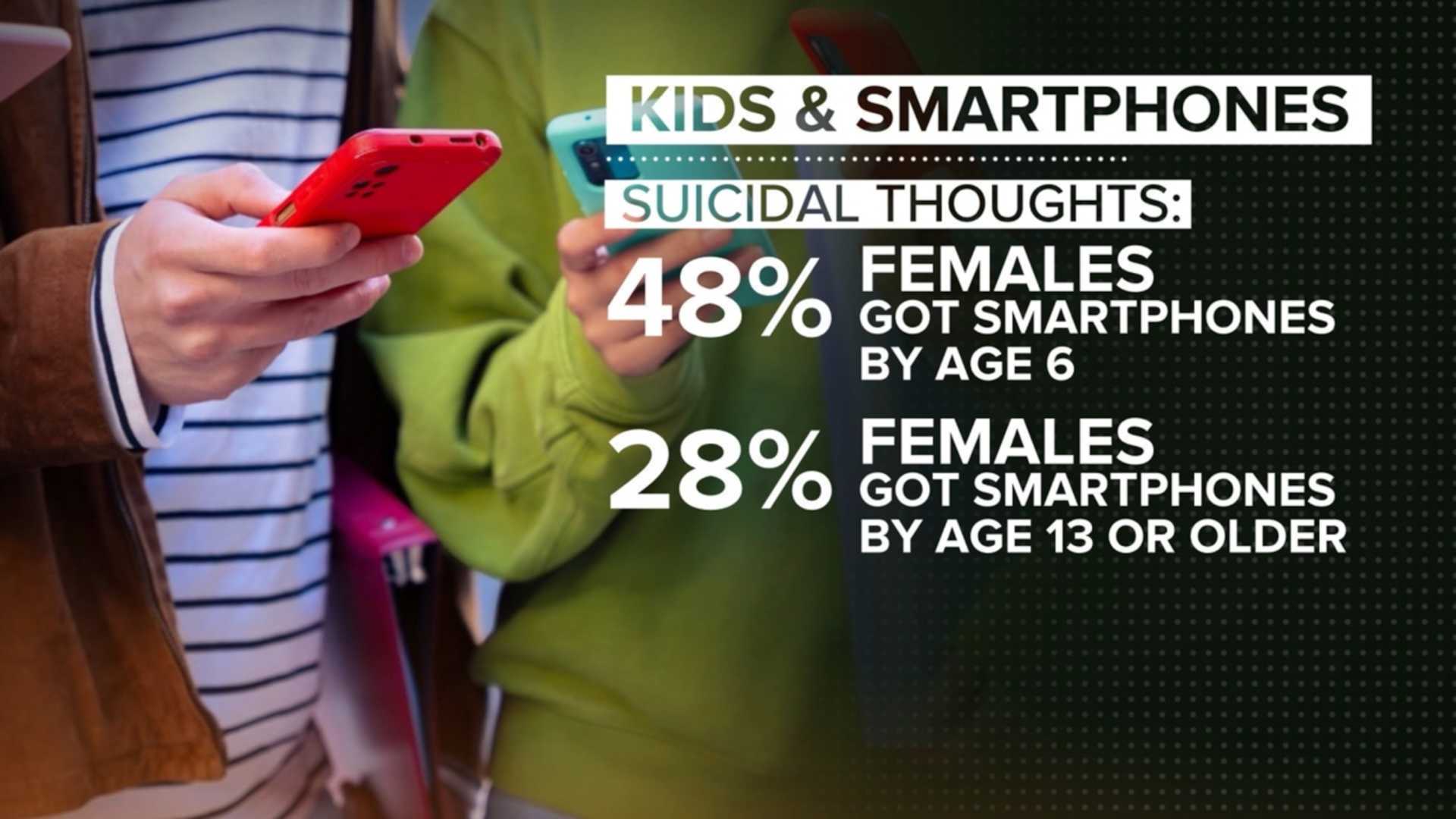Health
New Study Warns Against Smartphones for Kids Under 13

ARLINGTON, Virginia — A new study suggests that parents should wait until their children are at least 13 years old before giving them smartphones. Published Monday in the Journal of the Human Development and Capabilities, the research highlights serious mental health risks associated with smartphone use among children under 13.
The study, based on self-reported data from nearly 2 million participants in 163 countries, found that smartphone use before age 13 is linked to issues such as suicidal thoughts, poor emotional regulation, and lower self-worth. Girls appear to be particularly vulnerable, facing more severe effects.
According to the researchers, every year a child begins using a smartphone before the age of 13 correlates with poorer mental health outcomes. The findings suggest that early smartphone use increases exposure to social media, which can disrupt sleep, lead to cyberbullying, and result in negative family dynamics.
“This calls for urgent action limiting access of children under 13 to smartphones as well as more nuanced regulation on the digital environment young people are exposed to,” said Tara Thiagarajan, the study’s lead author and founder of Sapien Labs.
The study’s results were significant enough that researchers urged global restrictions on smartphone access for children. Previous studies have linked smartphones to anxiety and depression, but this survey also examined emotional regulation and self-worth, finding them critically impacted as well.
Although the data is based on self-reports and not independently verified, Thiagarajan emphasized the need for parents to have conversations about the effects of smartphones. She recommends postponing social media use until at least age 16.
Experts like clinical psychologist Melissa Greenberg suggest that even parents who have already given smartphones to their children should not panic. Instead, they should initiate dialogue with their children regarding the potential dangers associated with smartphone use.
If parents notice negative symptoms, Greenberg advises finding licensed professionals who can provide help. She also suggests implementing parental controls, removing specific problematic applications, or considering switching to a basic flip phone.
Greenberg urged parents to be sympathetic to their children’s likely reactions, explaining that managing smartphone use is a shared struggle among adults and kids alike. She recommends that parents start conversations with other families to encourage collective decisions about smartphone restrictions.
As discussions around smartphone use for children escalate, Thiagarajan noted that parents alone cannot tackle the broader societal issues that accompany early smartphone access. She advocates for parents to engage more actively in debates about digital regulation.












